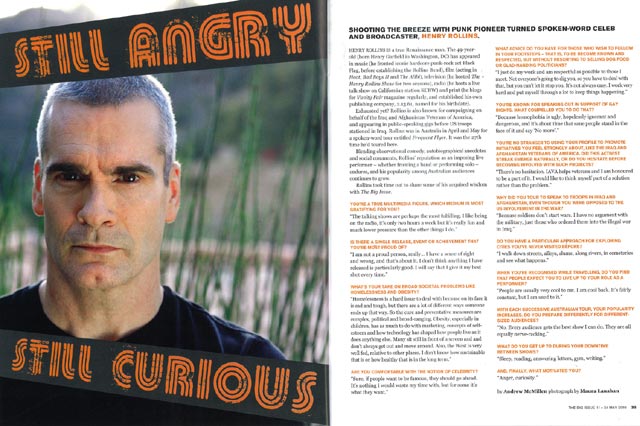Maxim Australia story: “European Union: Riding shotgun on a Ukrainian summer romance tour”, December 2011
A story for the December 2011 issue of Maxim Australia. Click the below image for a closer look, or read the article text underneath.
Travel: European Union
Maxim rides shotgun on the world’s premier romance tour. Truth be told, we left feeling weird and depressed.
Words by Andrew McMillen, photographs by Rachael Hall
Odessa, Ukraine
“Beautiful women grow in certain parts of the world more than others, and you’re in one of them. Maybe six or seven thousand guys in the world have experienced what you’re going to experience: Being put into a situation where you have so much choice that it’ll be mind-boggling. So be prepared, gas up, and I guarantee you’re going to have a wonderful time.”
These are the words of Larry Cervantes, public relations manager of a website named Anastasia (anastasiadate.com), which claims to be “the world’s leading international dating and romance tour company”.
My girlfriend – we met in Australia, but thanks for asking – and I are in a seaside city called Odessa, in south Ukraine, as guests of Anastasia. They invited us to check out their ‘Summer Romance Tour’ – a weeklong leap into the exotic abyss in search of love… or something like it.
The tour is centred around three “socials”, which are parties arranged by Anastasia in conjunction with local dating agencies. Really, it was a heart-warmingly wacky offer we just couldn’t refuse.
Friday
Our first social is at The Park Residence, a luxury venue with a swimming pool and tennis courts. The touring men aren’t just outnumbered by prospective partners but 45 female interpreters are also in attendance. They’re a necessity, as few Ukrainian women speak English, and none of the men (mostly Americans) speak the local tongue.
As the day begins, the atmosphere is more awkward high-school disco than adult social. But most of the guys are mingling within the hour. Larry’s initial prediction about the nature of this event rings true on two counts: The women are improbably attractive, though they are all members of local agencies whose clients consist entirely of beautiful women. And secondly: They all know they’re here for the sole purpose of meeting men.
The median age of the tour group sits between 40 and 45, so it’s likely these guys haven’t been in this kind of environment – artificial as it may be – since they last had a kegger at the frat house. It’s ironic, since many of the girls appear to be college freshmen age at best.
Sure, there’s a Willy Wonka factory’s worth of eye candy on display, but the likelihood of a “romance” blossoming between a middle-aged American man and a barely-adult Ukrainian woman? Call me the anti-Cupid but I’m a little sceptical.
Saturday
Today’s social is a four-hour bus ride away, in neighbouring city Kherson. Like the testosterone levels, group morale is high as we arrive at a club named Amigo. Unlike yesterday’s opulent surroundings, housing commission-style flats and a couple of convenience stores are Amigo’s only neighbours. As you may have guessed, there aren’t any tennis courts and swimming pools here.
Walking into a dark, hot, smoky club in the middle of nowhere at 1pm feels and smells just like it sounds. To make matters worse for the potential Romeos, the babe ratio is a measly two-to-one – around half of yesterday’s embarrassment of female riches. Still, those are better odds than most real-world nightclub situations.
Spending six hours inhaling the Amigo air is a tall ask for non-smokers. If, unlike myself and the missus, you are a smoker, I can’t recommend this place highly enough – 12 packs of gaspers here cost about a dollar.
Through the haze, Anastasia’s Ukrainian tour rep Olga leads a dance-off, wherein one of the tour’s oldest – and heaviest – men is relieved of his shirt and tie by a cunning local. A topless, sweating fat man is not something I thought I’d ever witness on a Saturday afternoon in south Ukraine. Mum always did say I was lucky, though.
In what I would call proof that a higher power exists, the 7pm finishing time draws near. Adios, Amigo. As we drive away, there’s a striking contrast between the tour’s mood upon arrival and departure. Under the blazing July sun it was all laughs and optimism, but as night falls on the ride home, there’s a distinct air of crushed expectations and the sound of hearts beginning to break. Or that could be the shonky bus suspension. Either way, there’s a noise.
Sunday
The tour’s third and final social is going to have to be something special to recoup the battering team morale took in Kherson. It’s also the group’s last realistic opportunity to meet local women and set up dates for the remainder of their stay in Odessa. If that doesn’t happen, it means being stuck with just your stockpile of cheap ciggies for company and nothing else.
Outside the venue – a beachside club named Itaka – the group pauses for a brief photo opportunity in the twilight, before venturing into the belly of the beast. We’re threaded down three flights of stairs and through a busy bar to the poolside bottom level, where 22 bikini-clad models are fanning themselves and posing for photos. It looks promising for the lads…
Tonight’s, we are here to behold the Miss Bikini 2011 contest. One of the judges is Dasha Astafieva, who was Playboy‘s 55th Anniversary Playmate in 2009. The winner is a petite blonde from neighbouring city Nikolaev named Natalia, who earns a Yamaha jet ski for her efforts. Post-ceremony, we’re treated to the musical stylings of Dasha’s pop group, Nikita. The mosh pit consists of around 50 local girls… and five tourists. After the eight-song set – performed alternately in English and Ukrainian – the stage is broken down and a dance floor emerges in front of the bar. The starter’s pistol has been fired. Party time!
Itaka could be any club anywhere in the world. Some guys pick up, some don’t. Looking across at the men clumsily dancing poolside or trying to converse with the opposite sex, it seems a bit of a stretch that it’s all worth it, romantically speaking. Finding a long-term partner – let alone a casual sex partner – in Odessa seems no more likely for these men than in their hometowns. True, you won’t be treated to a Euro pop performance or have access to dirt-cheap smokes, but if you’re looking to have a ‘Summer Romance Tour’ that’s affordable and where the women understand what you’re saying, I’d say do it domestically.
Sidebar: Love Bytes
An Odessa veteran gives us a hard dose of romantic reality
Roger – a personal trainer from St Louis, Missouri, in his early-40s – has toured Odessa with Anastasia four times. This’ll probably be his last trip. He says he only returned this time because his recently divorced friend Derek begged him to. He believes that every man on this trip will return home alone, because “you ain’t gonna meet somebody and fall in love in five days”. He hasn’t used the site in 11 years, but still gets weekly notifications from Ukrainian women trying to connect with him – which he deletes, unread.
His take on Anastasia is that it’s simply “bringing a bunch of old men a little bit of happiness. It’s money [for Anastasia], but it’s also happiness for the old guy on the computer thinking he’s writing a cute girl”. This is not always the case: often, the girls’ interpreters answer mail on their behalf. Physically, these tours are rarely a try-before-you-buy scenario for guys seeking potential brides; Roger guarantees that “95 or 96 per cent of the guys never sleep with the girls”. He laughs, saying, “All men are lonely old fools. You’ll get there one day.” Can’t wait!
For more on Anatasia and their romance tours, visit anastasiadate.com.
This 1,200 word story was edited down from a 5,000 word version, which can be read here: “In Search Of Ukrainian Summer Romance: Inside Anastasia’s Odessa Odyssey”. This link also includes many more photos, taken by Rachael Hall.
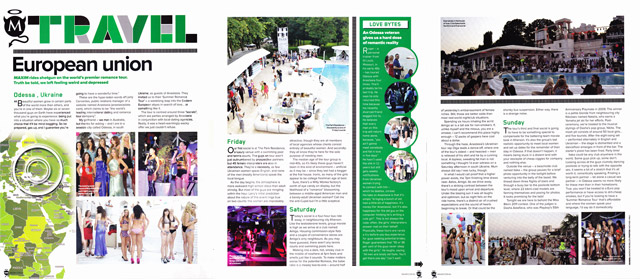
 Reggie Watts: Unscripted, but well prepared
Reggie Watts: Unscripted, but well prepared

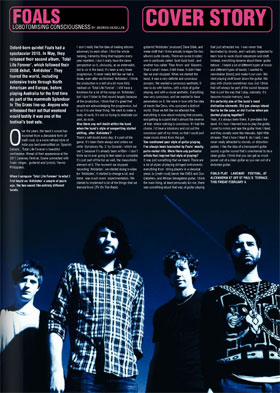
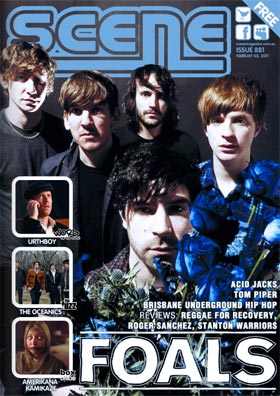 You mentioned your style of guitar playing. I’ve always been fascinated by Foals’ needly, palm-muted riffs. Were there any particular artists that inspired that style of playing?
You mentioned your style of guitar playing. I’ve always been fascinated by Foals’ needly, palm-muted riffs. Were there any particular artists that inspired that style of playing?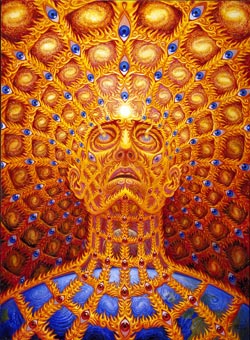
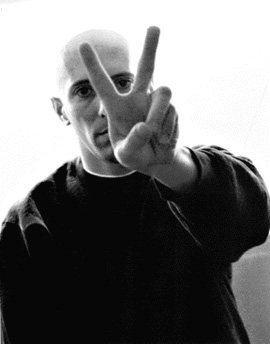 An interview with
An interview with 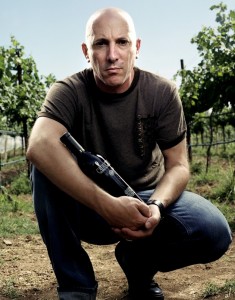 Did you enjoy the process, though?
Did you enjoy the process, though?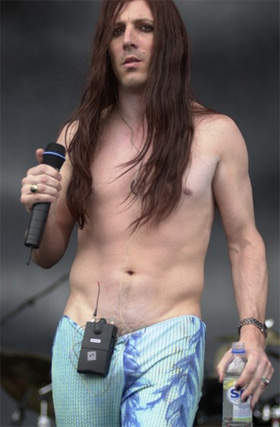 These days you say yes to a few more things, maybe not everything. Would you call that maturity or just a realisation that sometimes it’s okay to share some things?
These days you say yes to a few more things, maybe not everything. Would you call that maturity or just a realisation that sometimes it’s okay to share some things?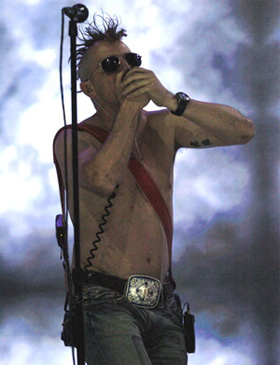 We have?
We have?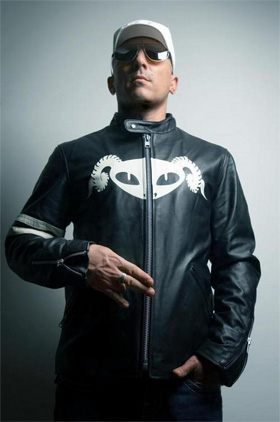 As an artist, you value art. Has that feeling become stronger?
As an artist, you value art. Has that feeling become stronger?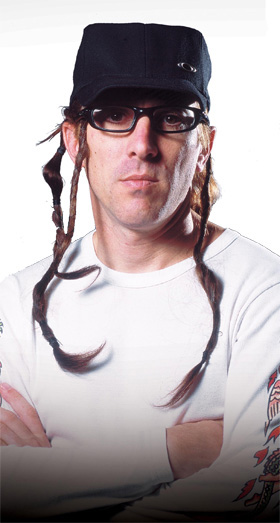 I see. Well, since you don’t necessarily have an album to promote this time around, will you be constructing a set list a little different to last time?
I see. Well, since you don’t necessarily have an album to promote this time around, will you be constructing a set list a little different to last time?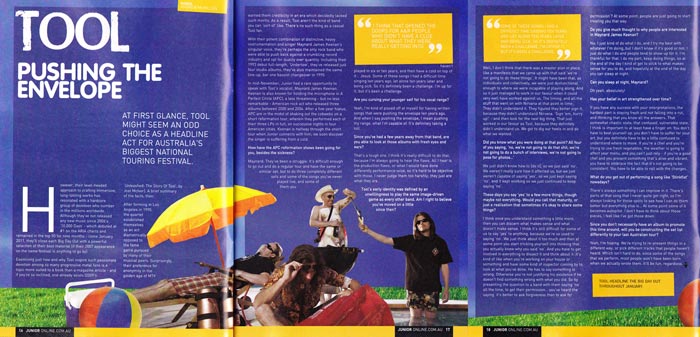
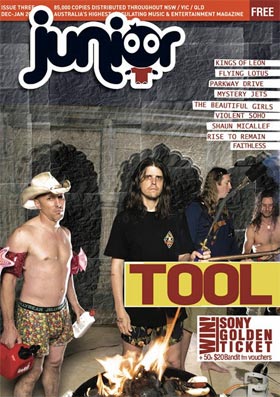 With their potent combination of distinctive, heavy instrumentation and singer Maynard James Keenan’s singular voice, they’re perhaps the only rock band who were able to push back against a crumbling record industry and opt for quality over quantity. Including their 1993 debut full-length,
With their potent combination of distinctive, heavy instrumentation and singer Maynard James Keenan’s singular voice, they’re perhaps the only rock band who were able to push back against a crumbling record industry and opt for quality over quantity. Including their 1993 debut full-length, 